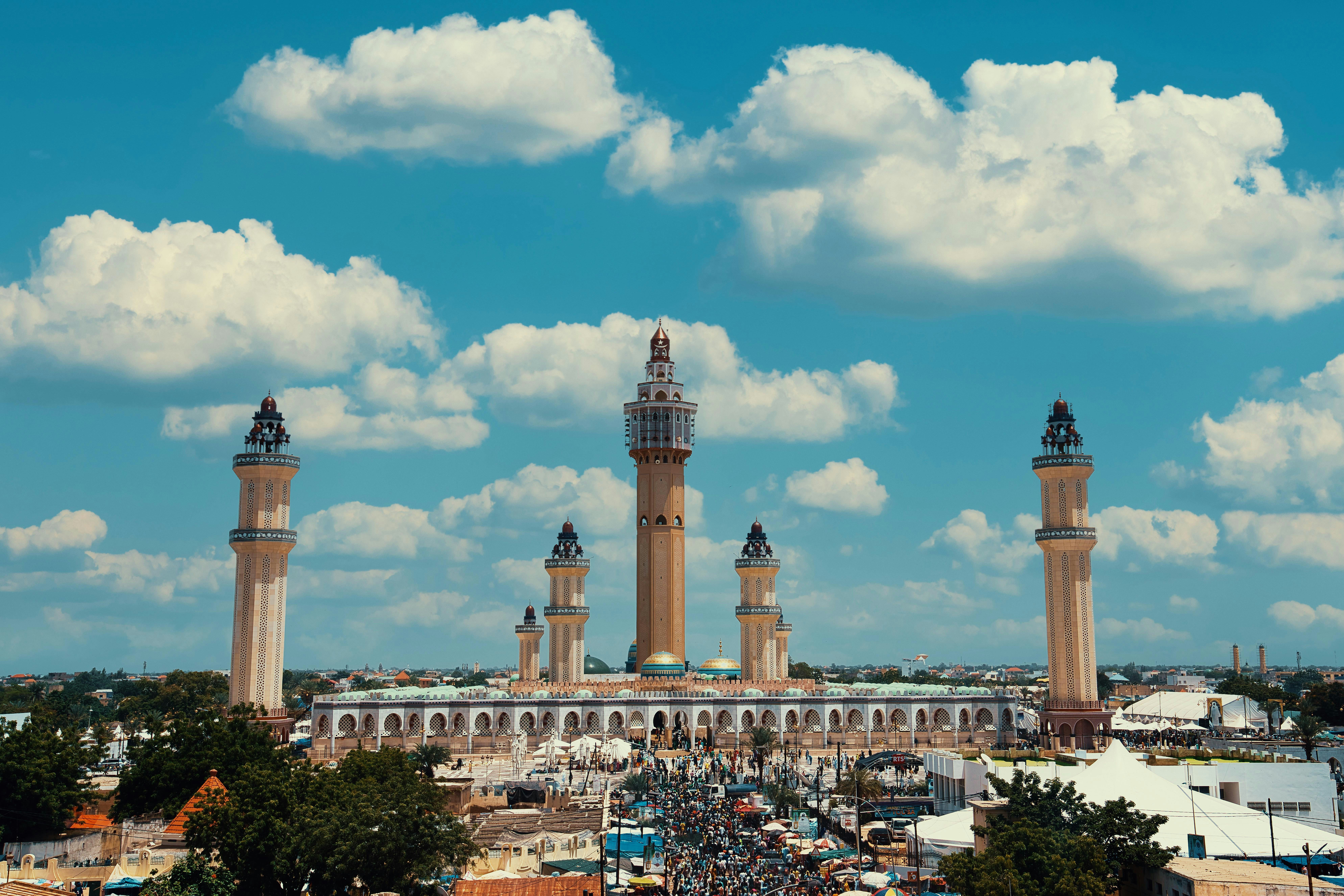J’ai rencontré de nombreux investisseurs qui disent presque mot pour mot :J’adore les entrepreneurs camerounais. Ils ont ce truc, cette capacité à construire, à présenter leur business… mais je n’aime pas l’écosystème.
Oui, le Cameroun a ses problèmes — deux systèmes juridiques, fiscalité lourde, bureaucratie. Mais voici ce qu’on oublie souvent :
I can summarize the Ivorian ecosystem with the following:
- Des fondateurs tenaces
Refusant de se laisser ralentir par les difficultés locales, ils pensent au-delà des frontières. En Afrique francophone, ce sont souvent les plus ambitieux et les plus vocaux. - Marché bilingue (français/anglais) Un atout rare qui fait du Cameroun un pont naturel entre l’Afrique francophone et anglophone.
- Villes en pleine croissance Douala et Yaoundé accueillent de nouveaux accélérateurs comme ActivSpaces ou des hubs internationaux comme Orange Fab.
- Intégration régionale (CEMAC) Grâce à la BEAC, les systèmes de paiement SYGMA et SYSTAC facilitent les transactions régionales — essentiel pour les startups numériques ou transfrontalières.
- Investissements numériques public-privé En mars 2025, l’UE a versé 1,93 M€ via PRICNAC à 12 micro-projets au Cameroun (70 % locaux), avec la Banque Mondiale apportant 100 M$ via le Projet d’Accélération de la Transformation Numérique.
- Programme entrepreneurial régional (NOWEDIF) Depuis mars 2025, la région du Nord-Ouest bénéficie de 1 milliard FCFA pour soutenir 25 startups tech (financement en actions de 10 000 à 100 000 $ + mentorat + réseau).
- Infrastructure tech à Douala Douala Tech Park, lancé en octobre 2024 à l’Institut JFN, est soutenu par Google Cloud, AWS, Microsoft Azure, Dassault Systèmes. Objectif : former 10 000 talents d’ici 2030 (IA, cybersécurité, big data, dev logiciel).
- Écosystème API en expansion Depuis début 2024, MTN Cameroun et la startup Chenosis ont lancé un marché d’API pour développeurs, facilitant l’intégration pour PME et éditeurs de logiciels.
- Besoin d’une Startup Act Une enquête du Nkafu Policy Institute montre que 98 % des fondateurs veulent une loi Startup Act pour résoudre les problèmes de financement et de réglementation — mais seulement 48 % en ont entendu parler.
- Momentum de Silicon Mountain (Buea)
Buea est en plein essor : Université de Buea (Google Developer Student Club), incubateurs (ActivSpaces, SM Ventures), événements tech comme SMCon (500+ participants/an).
Résumé Le Cameroun est un écosystème rude mais bouillonnant. Ce n’est pas encore un écosystème “propre” ou “lisse”, mais il est plein d’énergie, de résilience, et de connexions régionales utiles. Si vous cherchez des fondateurs audacieux, une portée transfrontalière et une tech de terrain, le Cameroun est déjà en mouvement.
Conclusion Le paysage startup de l’Afrique francophone n’est pas homogène — c’est une mosaïque de résilience, de réformes et d’ambitions nouvelles. Qu’il s’agisse du dynamisme bilingue du Cameroun, ou du réveil stratégique de l’Algérie, chaque pays trace sa propre voie tout en redéfinissant discrètement l’innovation sur le continent.
Le changement est en marche : les écosystèmes longtemps perçus comme périphériques deviennent centraux dans l’avenir technologique de l’Afrique.
L’argent avisé ne se demande plus si l’Afrique francophone va émerger — il cherche comment entrer tôt… et y rester longtemps.
À dans deux semaines pour un aperçu d’autres pays.
-Lina
Revue des principaux titres

Bonjour👋,
Welcome to the second edition of the The Next Wave Francophone Africa newsletter where we share the biggest insider insights and analysis of the region’s technology landscape. This is a bi-monthly newsletter, expect the next dispatch on July 15th. Sign up here and be the first to know.
This newsletter is published in bilingual format: French followed by English translation.
Let’s get into today’s dispatch!
The Francophone African Countries Powering the Next Startup Wave

We are continuing our dive into markets within Francophone Africa. As we’ve said before, Francophone Africa isn’t behind, it’s on a different trajectory entirely. What we didn’t mention is that one can divide it into 3 main zones: Northern Africa, West Africa and Central Africa.
This kind of “zoning” feels like colonialism because it is very similar to how France used to divide its lands in Africa.Sadly, this kind of separation still exists. But the good news is that there is now more teamwork both within each zone and between different zones. A few months ago, I was on a panel at a conference where businesses from Côte d’Ivoire, Cameroon, Chad, and the Central African Republic were sharing opportunities with each other.
Let’s get back to it: this time we are looking at Algeria and Cameroon. We are doing an overview of what makes those countries not just promising, but strategically primed for startup growth.
Algeria: The Fennec Fox who listened and is now acting
The country’s national mascot is the Fennec fox, an animal known for exceptionally large ears relative to its body size. Algeria can be described as such when it comes to the Tech ecosystem. For a while, the country seemed unusually quiet for its size—almost closed off, as if it were carefully observing other African ecosystems and waiting for the right moment to start building its own. However, it has recently been opening up and ready to attract both founders and investors.
With government-led reforms, increasing digital infrastructure, and an untapped young talent pool, Algeria offers a unique opportunity for tech investors seeking both growth potential and first-mover advantages (hello there VaulFi).
Here’s what we can get from Algeria right now:
- Digital Infrastructure and Banking Modernization: as of Q1 2025, Algeria has made significant progress in digital connectivity, particularly in the financial sector. For the first time, banks are now interconnected, a development that enhances the reliability, speed, and security of financial transactions across the country.
- Government Reforms and Pro-Business Policies: Algeria’s government has introduced legal and institutional reforms aimed at improving the investment climate. Notably, the government is reducing bureaucracy, offering tax incentives, and supporting startup incubators, particularly in tech hubs like Algiers and Oran.
- A growing openness to foreign ownership in key sectors marks a significant shift from earlier protectionist policies, signaling a clear intention to attract global capital and innovation while positioning Algeria as a gateway to both North Africa and the Sahel.
- Strategic Location and Market Access: Located at the intersection of Europe, Africa, and the Middle East, Algeria provides strategic market access to over 400 million consumers. It has trade agreements with the European Union, African countries through the African Continental Free Trade Area (AfCFTA), and Arab nations. This geographic and diplomatic positioning gives tech investors an opportunity to build regional platforms with Algeria as a hub.
- Emerging Tech Ecosystem: Government-backed programs like the National Startup Fund and incubators such as Algeria Venture are helping local startups access funding, mentorship, and visibility. Entrepreneurs are also launching ventures in fintech, e-commerce, edtech, agritech and health tech.
- Ecosystem reforms & tax incentives: Earlier this year Algeria climbed into Africa’s top 20 countries for young tech entrepreneurs and #2 on the continent. The government also introduced sweeping fiscal relief—transfer duty exemptions for incubators and “innovative” firms, including a 2-year extensions on IRG/corporate tax waivers and R&D deductions under the 2025 Finance Act .
- Algeria Venture & Startup Fund impact: Since its 2020 launch, Algeria Venture has supported over 800 startups across fintech, healthtech, logistics, and renewable energy . Complemented by the $411M national Startup Fund and collaboration with the Algerian Investment Fund, the ecosystem is now attracting strong capital flows .
- AI-led growth & infrastructure build-out: State-owned Algérie Télécom has deployed an $11M AI investment fund and aims to create 20,000 startups, with AI contributing 7% of GDP by 2027 . They’ve also rolled out 265,000 km of fiber and 1,400+ new 4G sites, with another 7,000 planned .
- Specialized sector funds in the pipeline: Minister Nourreddine Ouadah announced spring 2025 plans for new energy-focused investment funds (conventional and renewables), jointly backed by the Islamic Development Bank, plus extensions in AI/ICT financing.
Conclusion: Algeria is finally stepping into the startup spotlight with caution, but also with intention. The groundwork is being laid: policy shifts, infrastructure upgrades, sector-specific funds, and signals of long-term commitment from the government. The talent is there, and the market potential is real. Still, this is a young ecosystem that’s evolving in real time. For investors and founders willing to navigate some early-stage complexity, Algeria offers a rare chance to help shape, rather than just join—a rising North African tech hub.
Cameroon: Resilience Meets Reform

I have met countless investors stating almost word for word: “I love Cameroonian entrepreneurs, they have that “it”. They know how to build, push and present their business – I just don’t like the ecosystem.” Yes, Cameroon has its issues — dual legal systems, tax burdens, red tape. But here’s what people miss:
- Rising urban centers: Douala and Yaoundé are home to new accelerators like ActivSpaces and international hubs like Orange Fab.
- CEMAC region: Despite the challenges, the BEAC (Bank of Central African States) has developed regional payment systems like SYGMA and SYSTAC, reducing transaction costs and processing times, critical for startups operating online or cross-border.
- Persistent founders who have refused the perception and realities of the harshness of their ecosystem slow them down. Within Francophone Africa, they are often the most outspoken about building for bigger than their country. Their boldness can often make them seen as founders from the neighboring country to the West side.
- Digital ecosystem: French and English give startups in Cameroon a natural bridge between Francophone and Anglophone Africa.
- Regional entrepreneurship programs: In March 2025, the EU contributed €1.93 million (≈ US $2.1 million) through the PRICNAC initiative to 12 micro-projects in Cameroon—70 % of which were hosted locally—aimed at bolstering digital research, innovation, and entrepreneurship alongside the World Bank’s $100 million Digital Transformation Acceleration Project.
- New tech infrastructure in Douala: In October 2024, Douala Tech Park opened at JFN Hightech University Institute with support from Google Cloud, AWS, Microsoft Azure, and Dassault Systèmes. It aims to train 10,000 talents by 2030 in AI, big data, cybersecurity, and software engineering—marking a major leap in local capacity building.
- Emerging API ecosystem: Since early 2024, MTN Cameroon has teamed up with fintech startup Chenosis to launch a developer API marketplace. This enables seamless integration for SMEs and software developers, fostering a more collaborative digital economy.
- Study signals need for a Startup Act: A Nkafu Policy Institute/Foretia Foundation survey of startup founders found that 98 % support the adoption of a formal Cameroon Startup Act to address financing gaps, infrastructure deficits, and regulatory difficulties, though awareness stands at just 48 %.
- Silicon Mountain’s momentum: Buea’s “Silicon Mountain” is home to strong university communities (e.g., University of Buea’s Google Developer Student Club), incubators like ActivSpaces and Silicon Mountain Ventures, and vibrant events like the annual SMCon attracting 500+ participants.
Summary: Cameroon’s startup scene is gritty and full of untapped potential. It’s a market of builders—resilient, multilingual, and increasingly well-connected to regional opportunities. Infrastructure gaps and regulatory hurdles persist, but momentum is building from both the private and public sectors. If you’re looking for polish, it’s not here yet. But if you’re looking for bold founders, cross-border reach, and grassroots tech energy—Cameroon is already in motion.
Conclusion: Francophone Africa’s startup landscape is not a monolith, it’s a mosaic of resilience, reform and rising ambition. Whether it’s the bilingual dynamism of Cameroon, or Algeria’s strategic awakening, each country is charting its own path while quietly rewriting the rules of what innovation looks like on the continent. The shift is already underway: ecosystems once seen as peripheral are becoming central to Africa’s tech future. The smart money isn’t asking if Francophone Africa will rise, it’s figuring out how to get in early, and stay long. See you in two weeks for an overview of other countries.









